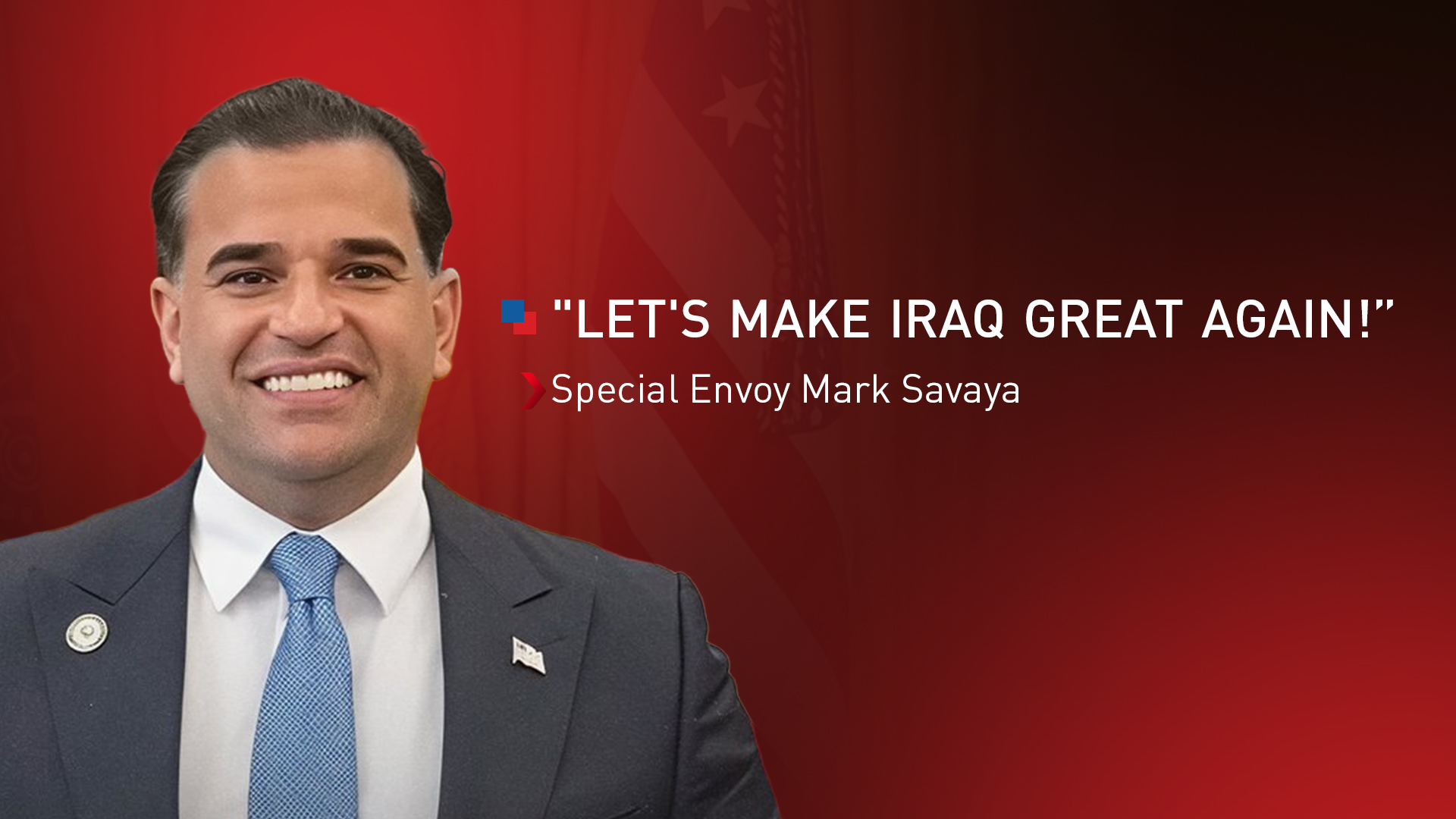Trump’s Envoy to Iraq Declares “Iraq Is Back,” Hailing Renewed U.S. Role in Baghdad’s Sovereignty Drive
Mark Savaya underscores Iraq’s progress under Trump’s Middle East policy, pledging deeper engagement to curb militias and foreign interference.

ERBIL (Kurdistan24) — U.S. President Donald Trump’s Special Envoy to Iraq, Mark Savaya, on Sunday declared that “Iraq is now back,” crediting Trump’s leadership for what he described as the country’s political and economic revival.
In a statement posted on his official X account, Savaya wrote, “BECAUSE OF THE GREAT LEADERSHIP OF PRESIDENT DONALD J TRUMP, IRAQ IS NOW BACK. I AM ON THE JOB.. LET'S MAKE IRAQ GREAT AGAIN!”
BECAUSE OF THE GREAT LEADERSHIP OF PRESIDENT DONALD J TRUMP, IRAQ IS NOW BACK. I AM ON THE JOB..
— Mark Savaya (@Mark_Savaya) November 2, 2025
LET'S MAKE IRAQ GREAT AGAIN! pic.twitter.com/rxlGHqlgOL
Savaya’s remarks follow his earlier post on Friday that was covered by Kurdistan24 English, outlining Washington’s renewed strategy toward Iraq’s sovereignty and stability. In that message, he praised Baghdad’s recent reforms aimed at consolidating power under a unified state authority, curbing the influence of armed factions, and attracting international investment to rebuild its fragile infrastructure.
He emphasized that “Iraq’s leadership has taken important steps to guide the country in the right direction,” but also warned that “the work is not yet complete.”
According to Savaya, the U.S. expects Iraq to maintain its course toward national unity, with “no place for armed groups operating outside the authority of the state.”
Savaya reiterated the Trump administration’s position that Iraq’s long-term stability depends on a government capable of asserting control over its territory, free from what he called “malign external interference, including from Iran and its proxies.”
His comments reflect a consistent U.S. policy priority: empowering Iraq to act as a fully sovereign nation, aligned with American and regional security interests.
The envoy also stressed that Iraq must avoid “returning to the past” or “adopting approaches that hinder progress and unity,” underscoring that unity between Baghdad and the Kurdistan Regional Government remains essential to ensuring national cohesion.
His language signals continued U.S. engagement with both federal and regional leaders to reinforce cooperation on governance, security, and energy development.
Savaya’s messaging marks an assertive return of Washington’s voice in Iraqi politics after years of relative disengagement.
By echoing Trump’s signature slogan, “MAKE IRAQ GREAT AGAIN,” he positioned his mission as part of a broader campaign to restore U.S. influence in the Middle East and secure Iraq’s role as “a pivotal country in promoting regional peace, security, and stability.”
As Savaya begins his tenure, observers say his approach will likely blend economic partnership with diplomatic pressure to ensure Iraq remains on a trajectory of sovereignty—one that limits the sway of foreign-backed militias and reasserts state control under a unified national command.
In Washington’s view, Iraq’s resurgence as a stable and self-reliant state is not only vital for its own citizens but also for the balance of power across a turbulent region—making Savaya’s mission central to Trump’s broader regional strategy.